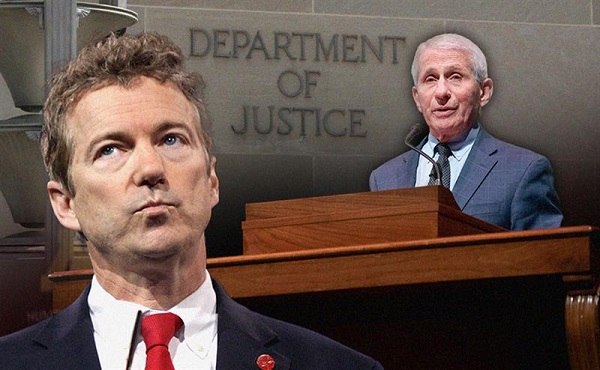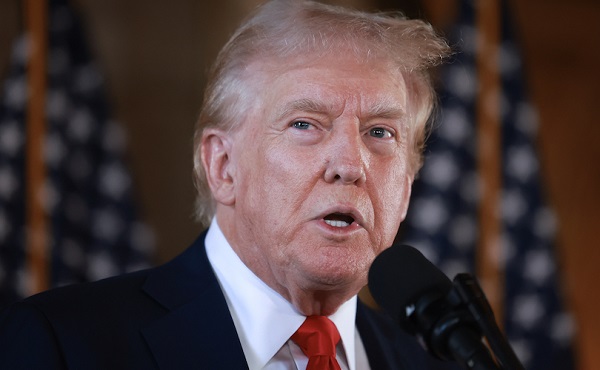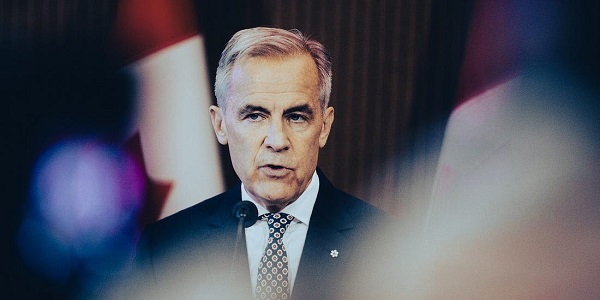Agriculture
Canadian Federation of Agriculture Awarded $560,000 for Single Portal Sustainability Sourcing

Canadian Federation of Agriculture Awarded $560,000 for Single Portal Sustainability Sourcing
Green certifications have become increasingly important in the food industry, as consumers look for confirmation that their food is being produced and processed in an environmentally friendly manner. In Canada, there has been a recent movement of concerned consumers looking for more transparency within the food industry. Organizations like Food Secure Canada advocate for a better food system that improves the connection between health, sustainability and agriculture.
In February 2020, the Minister of Agriculture and Agri-Food stated that the Canadian Federation of Agriculture would invest in a new sustainability initiative. The Canadian Federation of Agriculture is the largest farm organization in Canada, representing over 200,000 farms. The organization has played a critical role in advancing environmental sustainability practices within the food industry.
The Canadian Agri-Food Sustainability Initiative (CASI) will work with farmers, manufacturers, food processors and retailers to improve transparency in the Canadian food system. The initiative will promote sustainability through an integrated process that depends on data and collaboration to transform the food industry and improve relations with consumers.
The Canadian Food System
Canada is one of the top five exporters of food in the world. The Canadian agriculture and agri-food system generates over $100 billion in sales annually and employs over 2 million people. The agricultural food system is a significant player in Canada’s economic wealth and stability. However, like other large agricultural exporters — such as the United States — Canada has faced recent scrutiny over their production practices. Many large-scale and industrialized agriculture productions are harmful to the environment and detrimental to human health.
With such a large proportion of Canadian food exported, many domestic consumers distrust the public policies that lack transparency over the industry’s environmental impact and unsafe production practices. With the creation of the Candian Agri-Food Sustainability Initiative, the federal government hopes to facilitate improved sustainability throughout the food industry.
The Canadian Agri-Food Sustainability Initiative
The Canadian Agri-Food Sustainability Initiative includes a federal investment of $560,000. These funds will go toward the creation of an online forum that advances the analytic capabilities of producers and farmers. By creating a new network around sustainability, the project hopes to track the progress of sustainable practices in the Canadian food industry.
The initiative will also help producers and processors work together to certify products with sustainability labels that consumers are looking for. The Canadian Agri-Food Sustainability Initiative will rely on data analytics and real-time analysis of food production and processing to find solutions to unsustainable issues. From a consumer standpoint, it will increase trust in the use of food labels and regulate claims regarding the quality of various products.
Sustainability in the Agri-Food Industry
Canada’s agricultural system relies on the production of corn, potatoes, soybeans and commodity grains like wheat. Western parts of Canada have a higher production of beef, while the Eastern side focuses more on poultry. Unlike other top food exporters, Canada has been steadily growing the organic aspect of their production processes at a rate of 20% per year.
However, the percentage of land utilized for organic farming is meager — around 1.8 percent in 2017. Despite this, organic products still valued around $5.4 billion in both domestic and exported goods.
With such an economic reliance on the agricultural industry, the farm community, consumers and other concerned citizens are working together to ensure they manage Canadian soil more responsibly. According to the Canadian Federation of Agriculture, solutions like climate change research, bioeconomic strategy and the continuation of research and innovation within the industry will be key to future success.
Improving the Future of Canadian Agriculture
With this new initiative in place, agriculturists can have more confidence in growing organic products. Consumers, too, will be able to put their trust in the food industry, knowing the food they’re purchasing was grown sustainably.
https://www.todayville.com/what-the-usmca-might-mean-for-agriculture-and-biotechnology/

I’m Emily Folk, and I grew up in a small town in Pennsylvania. Growing up I had a love of animals, and after countless marathons of watching Animal Planet documentaries, I developed a passion for ecology and conservation. You can read more of my work by clicking this link: Conservation Folks.
Agriculture
Lacombe meat processor scores $1.2 million dollar provincial tax credit to help expansion

Alberta’s government continues to attract investment and grow the provincial economy.
The province’s inviting and tax-friendly business environment, and abundant agricultural resources, make it one of North America’s best places to do business. In addition, the Agri-Processing Investment Tax Credit helps attract investment that will further diversify Alberta’s agriculture industry.
Beretta Farms is the most recent company to qualify for the tax credit by expanding its existing facility with the potential to significantly increase production capacity. It invested more than $10.9 million in the project that is expected to increase the plant’s processing capacity from 29,583 to 44,688 head of cattle per year. Eleven new employees were hired after the expansion and the company plans to hire ten more. Through the Agri-Processing Investment Tax Credit, Alberta’s government has issued Beretta Farms a tax credit of $1,228,735.
“The Agri-Processing Investment Tax Credit is building on Alberta’s existing competitive advantages for agri-food companies and the primary producers that supply them. This facility expansion will allow Beretta Farms to increase production capacity, which means more Alberta beef across the country, and around the world.”
“This expansion by Beretta Farms is great news for Lacombe and central Alberta. It not only supports local job creation and economic growth but also strengthens Alberta’s global reputation for producing high-quality meat products. I’m proud to see our government supporting agricultural innovation and investment right here in our community.”
The tax credit provides a 12 per cent non-refundable, non-transferable tax credit when businesses invest $10 million or more in a project to build or expand a value-added agri-processing facility in Alberta. The program is open to any food manufacturers and bio processors that add value to commodities like grains or meat or turn agricultural byproducts into new consumer or industrial goods.
Beretta Farms’ facility in Lacombe is a federally registered, European Union-approved harvesting and meat processing facility specializing in the slaughter, processing, packaging and distribution of Canadian and United States cattle and bison meat products to 87 countries worldwide.
“Our recent plant expansion project at our facility in Lacombe has allowed us to increase our processing capacities and add more job opportunities in the central Alberta area. With the support and recognition from the Government of Alberta’s tax credit program, we feel we are in a better position to continue our success and have the confidence to grow our meat brands into the future.”
Alberta’s agri-processing sector is the second-largest manufacturing industry in the province and meat processing plays an important role in the sector, generating millions in annual economic impact and creating thousands of jobs. Alberta continues to be an attractive place for agricultural investment due to its agricultural resources, one of the lowest tax rates in North America, a business-friendly environment and a robust transportation network to connect with international markets.
Quick facts
- Since 2023, there are 16 applicants to the Agri-Processing Investment Tax Credit for projects worth about $1.6 billion total in new investment in Alberta’s agri-processing sector.
- To date, 13 projects have received conditional approval under the program.
- Each applicant must submit progress reports, then apply for a tax credit certificate when the project is complete.
- Beretta Farms has expanded the Lacombe facility by 10,000 square feet to include new warehousing, cooler space and an office building.
- This project has the potential to increase production capacity by 50 per cent, thereby facilitating entry into more European markets.
Related information
Agriculture
Unstung Heroes: Canada’s Honey Bees are not Disappearing – They’re Thriving

Canada’s Bee Apocalypse began in 2008. That was the year the Canadian Association of Professional Apiculturists (CAPA) first reported unusually high rates of winter bee colony losses. At 35 percent, the winter die-off that year was more than twice the normal 15 percent rate of attrition.
“Successive annual losses at [these] levels … are unsustainable by Canadian beekeepers,” the CAPA warned. This set off an avalanche of dire media reports that now appear on a regular basis. Among the many examples over the years: Huge Honey Bee Losses Across Canada” and “Canada’s bee colonies see worst loss in 20 years”. As each of these stories reminds readers, the disappearance of honey bees will doom our food supply, given their crucial role in pollinating crops including canola, soyabeans, apples, tomatoes and berries.
This year the black-and-yellow striped Cassandras are back at work, with headlines shouting “Scientists warn of severe honeybee losses in 2025” and “The Bees are Disappearing Again”. If it’s spring, the bees must be disappearing. Again.
It is, however, mathematically impossible for any species to be in an allegedly continuous and calamitous state of decline over nearly two decades and never actually reduce in number. For despite the steady supply of grave warnings regarding their imminent collapse, Canada’s bees are actually buzzing with life.
In 2007, according to Statistics Canada, there were 589,000 honey bee colonies in Canada,; in 2024, they reached 829,000, just shy of 2021’s all-time high of 834,000. Figuring a conservative summertime average of 50,000 bees per colony, that means there are approximately 12 billion more honey bees in Canada today than when the Bee Apocalypse first hit.
As for beekeepers, their numbers have also been growing steadily, and now stand at 15,430 – the most recorded since 1988. As CAPA’s report acknowledges, “the Canadian beekeeping industry has been resilient and able to grow, as proven by the overall increase in the number of bee colonies since 2007 despite the difficulties faced every winter.”
How is this possible? As is usually the case where there’s a need to be filled, the market holds the answer.
It is true that Canadian honey bees face a long list of threats and challenges ranging from mites and viruses to Canada’s harsh winters. It is also true that they perform a crucial service in pollinating crops, the value of which is estimated at $7 billion annually. However, this underscores the fact that bees are a livestock bred for a particular agricultural purpose, no different from cattle, chickens or pen-raised salmon. They are a business.
And in spite of its alleged status as an environmental totem, the honey bee isn’t even native to North America. It was first imported by European settlers for its honey-making abilities in the 1600s. Since then, it has been cultivated with deliberate commercial intent – allowing it to outcompete native pollinators such as bumble bees and butterflies even though it is poorly suited to the local winter. (This highlights the irony of all those native-plant pollinator gardens virtuously installed in neighbourhoods across Canada that end up supporting an invasive honey bee population.)
The significance of the bee economy means that when a beehive collapses over the winter for whatever reason, beekeepers have plenty of motivation to regenerate that colony as swiftly as possible. While hives can create their own queens over time, this can be a slow process given the cold Canadian climate. The better option is to simply buy a new queen from a warmer country.
In 2024, Canada imported 300,000 queens worth $12 million, mostly from the U.S., Italy, Australia and Chile. That works out to $40 each. In a miracle of nature, each of these new queens can lay up to 2,500 eggs a day, and each egg takes just two to three weeks to reach full maturity as a worker or drone. It is also possible to import entire “bee packages” that include a queen and 8,000 to 10,000 bees.
As a result, even a devastating 50 percent winter loss rate, something that has occurred only rarely in Canada in individual provinces and never nationally, isn’t necessarily fatal to any beekeeping operation. The beekeeper can purchase imported queens in April, split their existing colonies and be back in business by May or June.
And regardless of the honey bee’s apparent difficulties with Canada’s unforgiving weather (efforts are ongoing to breed a hardier Canadian variant), there’s no shortage of bees worldwide. Earlier this year, the German statistical agency reported the global beehive count rose from 69 million in 1990 to 102 million in 2023. Another study looking back to 1961 by New Zealand researchers found the number of honey bee colonies has “nearly doubled” over this time, while honey production has “almost tripled.” As the New Zealand report observes, “Headlines of honey bee colony losses have given an
impression of large-scale global decline of the bee population that endangers beekeeping, and that the world is on the verge of mass starvation.” Such claims, the authors note, are “somewhat inaccurate.” In truth, things have never been better for bees around the world.
Here in Canada, the ability to import queens from other countries, together with their prodigious reproductive capabilities, backstops the amazing resiliency of the bee industry. Yes, bees die. Sometimes in large numbers. But – and this is the bit the headlines always ignore – they come back. Because the market needs them to come back.
If there is a real threat to Canada’s bee population, it’s not environmental. It’s the risk that unencumbered trade in bees might somehow be disrupted by tariffs or similar bone-headed human interventions. Left on their own, bees have no problem keeping busy.
The longer, original version of this story first appeared at C2CJournal.ca
-

 Alberta2 days ago
Alberta2 days agoMedian workers in Alberta could receive 72% more under Alberta Pension Plan compared to Canada Pension Plan
-

 Crime2 days ago
Crime2 days agoDEA Busts Canadian Narco Whose Chinese Supplier Promised to Ship 100 Kilos of Fentanyl Precursors per Month From Vancouver to Los Angeles
-

 COVID-192 days ago
COVID-192 days agoSen. Rand Paul: ‘I am officially re-referring Dr. Fauci to the DOJ’
-

 Education2 days ago
Education2 days agoTrump praises Supreme Court decision to allow dismantling of Department of Education
-

 National1 day ago
National1 day agoDemocracy Watch Blows the Whistle on Carney’s Ethics Sham
-

 Business2 days ago
Business2 days agoCanada must address its birth tourism problem
-

 Business2 days ago
Business2 days agoConservatives demand probe into Liberal vaccine injury program’s $50m mismanagement
-

 International1 day ago
International1 day agoMatt Walsh slams Trump administration’s move to bury Epstein sex trafficking scandal





